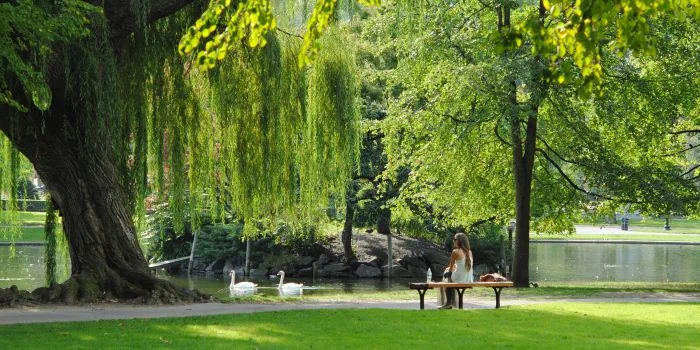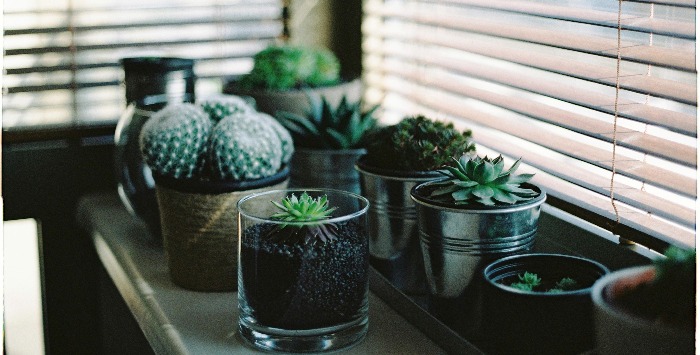Discover the health benefits of nature
Being outside and spending time in nature is so important for our sense of wellbeing at any time of the year. But this is the perfect time of the year for me to share the benefits of nature, and to explore how you can make the most of the green spaces around you.

Health benefits of nature
Spending time in nature has a huge range of potential benefits to your wellbeing, such as:
- increasing your happiness and improving your mood
- reducing stress and anger
- helping those who have anxiety or depression
- helping people who have SAD (a type of depression that often happens during the winter months)
- boosting relaxation
- encouraging you to be active
- improving your self-esteem, confidence, and satisfaction with life
- encouraging you to learn new skills, with some research suggesting it may even make you smarter!
- Helping you to feel more connected to nature, yourself, and other people
Eight ways to get involved with nature
Here are eight easy things you can do to help your wellbeing and nature at the same time.
1.Make a bug hotel
Encourage nature and wildlife into your garden by making a bug hotel or hedgehog house. This is a great activity to get your children involved in too.
2.Grow some veggies and herbs to put in your meals
Fresh mint, chives, and basil are delicious additions to meal times and easy to grow in your own garden. They’re quite easy to grow in pots on a balcony or patio area if you don’t have a big garden. You could also grow some fruit and vegetables like chilli, tomatoes, and rhubarb.
If you do have a garden, make the most of it, even if you’re a beginner, and enjoy the health benefits of gardening. Anne took on her father’s garden and says: “I have little expertise and I make pruning and planting mistakes daily - what I didn't remotely expect were the benefits: calm, peace, time out and reconnection with wildlife.”
3.Plant flowers that will attract butterflies
According to the RSPB, butterfly-friendly plants and flowers include the following:
- Spring: Lady’s-smock, Bugle, and Goat willow
- Summer: English lavender, Marjoram, and Coneflower
- Autumn: Iceplant, Ivy, and Michelmas daisy
Then sit back and relax as you watch beautiful, multi-coloured butterflies flutter around your garden.
4.Take your dog for a walk
If you have one, take your pooch on a long walk and enjoy watching them run, sniff, and play with a ball. As well as being great companions, dogs can really help boost our physical and mental wellbeing too.
5.Go on a nature walk or take part in a nature survey
Explore your local woodlands while looking out for birds, fish, squirrels, frogs, and insects. If you’re taking part in a survey, you may be asked to count and report your sightings.
6.Go stargazing
Take time out to look up at the stars, spot comets, or watch different phases of the moon. You can read up online about the different constellations and activity happening in the sky.
7.Eat al fresco
Eating outside is a great way to relax and a good break from the routine of watching TV with your dinner on your knees.
8. Notice the wildlife wherever you are
It may be that you don’t have a garden, so do make sure you go out regularly for a walk to spend time outside. Notice the wildlife wherever you are: the birdsong outside your window, the squirrels in your local park, the insects and ducks on the canal or river.
Natalie lives in a flat and doesn’t have a garden, but she said: “There’s a cherry tree outside my bedroom window and over the last week or so I’ve enjoyed watching some parakeets feasting on the fruit and chattering away.”
How to bring the outside in
There are also lots of ways you can bring nature into your home too.

Natural scents
Use natural fragrances such as spraying lavender or jasmine on your pillow at night or buy some scented candles.
Indoor plants
Decorate your home with green plants. If you’re worried about keeping them alive, go for cacti and succulents which are easier to care for. Or you could even get some artificial plants.
Arts and crafts
Collect natural materials and display or make something with them. Gather driftwood, sea glass, shells, pebbles, and feathers, for example.
Photography
Use a photo of your favourite natural place as your screensaver on your phone. Every time you look at that memory of the beach it will give you a little lift. Take a second to close your eyes, take a deep breath and be transported back to that moment. You could also put some photos up around your home to remind you of your happy travels.
Interior design
Buy a floral duvet set or cushion to bring some colour into your bedroom or living room.
Sounds from the natural world
Listen to natural sounds such as the waves, rain falling, or sounds of animals in the jungle as a method of relaxation. Close your eyes and drift away to somewhere exotic.
Watch nature programmes
Watch a nature documentary. Some research has suggested that watching a nature programme can have the same benefits as doing meditation. So on that final note, enjoy this clip of David Attenborough saying boo to a sloth.
-
Sources Sources
- Links between natural environments and mental health (EIN065): Access to Evidence. Natural England. nepubprod.appspot.com, published 7 November 2022
- Nature and mental health. Mind. mind.org.uk, published November 2021
- Connection to nature: evidence briefing (EIN068): Access to Evidence. Natural England. nepubprod.appspot.com, published November 2022
- The health and wellbeing impacts of volunteering with The Wildlife Trusts. The University of Essex. wildlifetrusts.org, published 2018
- Wang D, MacMillan T. The Benefits of Gardening for Older Adults: A Systematic Review of the Literature. Activities, Adaptation & Aging 2013;37(2):153-181. DOI: 10.1080/01924788.2013.784942
- Polheber JP, Matchock RL. The presence of a dog attenuates cortisol and heart rate in the Trier Social Stress Test compared to human friends. J Behav Med. 2014 Oct;37(5):860-7. doi: 10.1007/s10865-013-9546-1. Epub 2013 Oct 30
- Martin F, Bachert KE, Snow L, Tu HW, Belahbib J, Lyn SA. Depression, anxiety, and happiness in dog owners and potential dog owners during the COVID-19 pandemic in the United States. PLoS One 2021 Dec 15;16(12):e0260676. doi: 10.1371/journal.pone.0260676
- Ideas to try in nature. Mind. mind.org.uk, published 2021
- Kreplin U, Farias M, Brazil I. The limited prosocial effects of meditation: a systematic review and meta-analysis. Sci Rep 2018;8:2403. doi:10.1038/s41598-018-20299-z
- Soga Masashi, Gaston Keving, Yamaura Yuichi. Gardening is beneficial for health: a meta-analysis. Prev Med Rep 2016;5:92-99. doi:10.1016/j.pmedr.2016.11.00
About our health information
At Bupa we produce a wealth of free health information for you and your family. This is because we believe that trustworthy information is essential in helping you make better decisions about your health and wellbeing.
Our information has been awarded the PIF TICK for trustworthy health information. It also follows the principles of the The Information Standard.

More mental health and wellbeing articles
Did you find our advice helpful?
We’d love to hear what you think. Our short survey takes just a few minutes to complete and helps us to keep improving our healthy lifestyle articles.
Legal disclaimer
This information was published by Bupa's Health Content Team and is based on reputable sources of medical evidence. It has been reviewed by appropriate medical or clinical professionals and deemed accurate on the date of review. Photos are only for illustrative purposes and do not reflect every presentation of a condition.
Any information about a treatment or procedure is generic, and does not necessarily describe that treatment or procedure as delivered by Bupa or its associated providers.
The information contained on this page and in any third party websites referred to on this page is not intended nor implied to be a substitute for professional medical advice nor is it intended to be for medical diagnosis or treatment. Third party websites are not owned or controlled by Bupa and any individual may be able to access and post messages on them. Bupa is not responsible for the content or availability of these third party websites. We do not accept advertising on this page.







